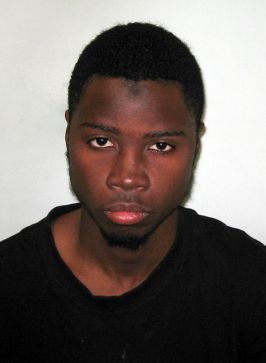Muslim extremist found guilty of soldier beheading plot

The 19-year-old man found guilty of planning to behead a British soldier converted to Islam after a strict Jehovah's Witness upbringing.
Brusthom Ziamani was convicted of preparing an act of terrorism at the Old Bailey on Thursday. He was inspired by the murder of soldier Lee Rigby in May 2013.
London born, Ziamani was brought up as a Jehovah's Witness by his Congolese parents in Camberwell. He reportedly became interested in Islam through rap music as a teenager, and converted just months before his arrest on 19 August last year.
Kicked out of home by his parents for his newfound faith, he was taken in by the banned Islamist group al-Muhajiroun, formed by radical cleric Anjem Choudary and militant leader Omar Bakri Muhammad.
He was first arrested in June 2014 when the flat he was living in was raided by police over accusations it was being illegally sublet. Officers found a letter written by Ziamani in the pocket of his jeans in which he pledged to "wage war against the british government on this soil".
"The british government will have a taste ov there own medicine they will be humiliated this is ISIB Islamic States of Ireland and Britain, [sic]" the letter continued. He urged his "fellow muslim brothers" to implement Sharia law in the UK and behead British soldiers.
"I will fight in the case of Allah and I plan to die a martyr and leave this world and enter the next inshallah. I love Allah and will follow everything he orders."
Despite admitting to writing the letter, Ziamani was released on bail, though he was closely monitored by counter-terrorism officers and encouraged to join the Prevent programme for those at risk of being radicalised.
He was arrested again on 19 August. A backpack he was carrying was found to contain a 12 inch knife and a hammer wrapped in a black Islamist flag. It emerged that Ziamani had researched the location of army cadet bases in London, and had told an ex-girlfriend of a plan to murder soldiers, describing Rigby's killer Michael Adebolajo as a "legend".
Commander Richard Walton, from London police's Counter Terrorism Command, said after the verdict that the case starkly illustrated one of the threats police currently face in Britain.
"Ziamani was an impressionable young man who became radicalised then rapidly developed an extremist, violent mindset," he said in a statement. "Over a series of months he ultimately developed a desire to carry out a terrorist attack on British soldiers."
Ziamani will be sentenced on March 20.
Last August, Britain raised its international terrorism threat level to the second-highest rating, "severe", meaning an attack is considered highly likely.
Since then, dozens of people have been arrested, including some over alleged plots to behead police officers, soldiers or members of the public. Police across the country have also been warned to be alert to the risk of attack.
(Additional reporting by Reuters)











